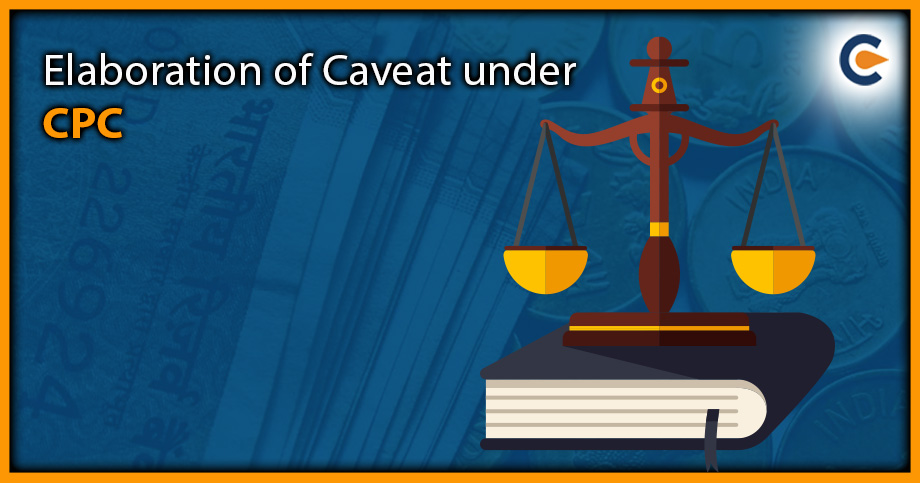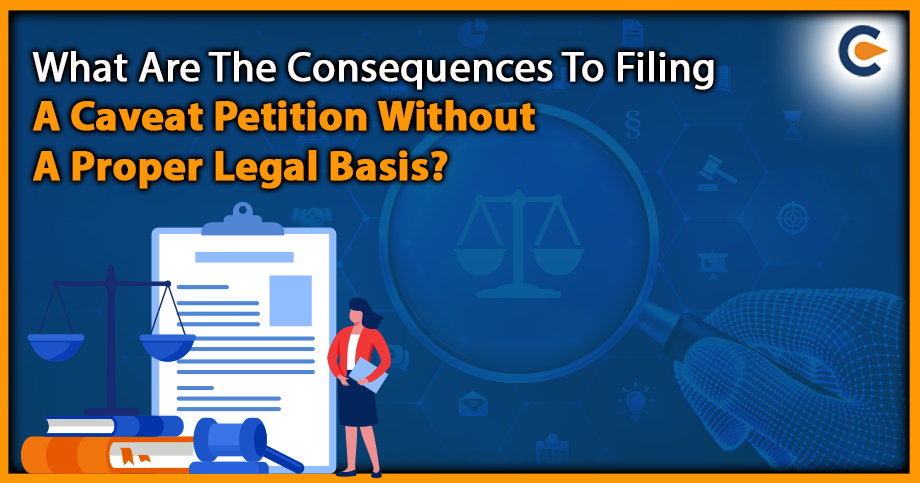The Code of Civil Procedure (CPC) is a comprehensive piece of legislation that governs civil litigation in India. One of the essential provisions of the CPC is the concept of a caveat, which serves as a precautionary measure to protect the interests of a person in certain situations. A caveat is a legal notice that is filed by a person with the court or public office to prevent any action from being taken without giving the person who filed the caveat an opportunity to be heard. In this blog, we will discuss in detail the concept of a caveat under the CPC.
Section 148-A of the Code of Civil Procedure, 1908
Section 148-A of the CPC gives a person the right to lodge a caveat. However, the term “caveat” is not defined anywhere in the code. This term comes from the Latin word “caveat emptor,” which means “let the buyer beware.” In legal terms, it means that a person must take responsibility for their own decisions, and a caveat serves as a warning to be cautious. The purpose of filing a caveat is to ensure that a person’s rights are protected and that they are not deprived of them without being heard. It is an important legal mechanism that is commonly used in probate proceedings, property disputes, and other matters where a person’s interest is at stake.
When a caveat is filed, the court or public office must give notice to the person who filed it if any action is taken that may affect their rights. For instance, if a person files a caveat in a property dispute, the court cannot pass an order on the matter until the person who filed the caveat is heard. This ensures that the person’s interests are protected and that they have a fair opportunity to present their case before any action is taken.
The caveat serves as a precautionary measure to prevent any injustice or harm to a person’s interests. For instance, in a probate proceeding, if a person believes that they have a right to inherit the property of the deceased, they can file a caveat to ensure that they are given a chance to be heard before any distribution of property takes place. This prevents any unjust distribution of the property and ensures that the person’s interests are protected.
It is important to note that a caveat is not a substantive proceeding but only a notice or warning. It does not give the person who filed it any right to interfere with the proceedings, nor does it prevent the court or office from taking necessary action. It simply ensures that the person who filed the caveat is heard before any action is taken that may affect their interests.
Procedure for Filing of Caveat
Filing a caveat is a straightforward process. A person can file a caveat by submitting a written statement to the court or public office, along with the prescribed fee. The written statement should be filed in duplicate, and the court or public office will keep one copy and return the other copy to the person lodging the caveat after affixing a seal and a date stamp. The statement should include information about the case, the justifications for the caveat, and the relief the caveat-filer is requesting.
Once the caveat is filed, the person lodging the caveat must serve notice of the caveat on all parties who may be affected by the proceeding. This is to ensure that they are aware of the caveat and have an opportunity to respond before any action is taken. However, it is important to note that lodging a caveat does not give the person lodging it any right to interfere with the proceeding or prevent the court or office from taking necessary action. It simply ensures that the person lodging the caveat is heard before any action is taken that may affect their interests.
Duration of Caveat
The duration of a caveat depends on the type of proceeding and the jurisdiction in which it is filed. In general, a caveat has a limited duration and needs to be renewed periodically to ensure that the person who filed it continues to be heard. If a caveat is not renewed within the prescribed time, it will lapse, and the person who filed it will lose their right to be heard.
In India, under the Code of Civil Procedure (CPC)[1], a caveat filed in a civil suit or proceeding is valid for 90 days from the date of filing. During this period, if any application or proceeding is filed in court against the caveator, the court must give notice to the caveator before passing any ex parte order. After 90 days, the caveat will expire, and the person who filed it will lose their right to be heard. However, the caveat can be renewed by filing an application for renewal before the expiration of the 90-day period.
Conclusion
In conclusion, a caveat under the CPC is an essential legal mechanism that provides an opportunity for a person to protect their interests by filing a notice with the court or public office. It ensures that the person is given a chance to be heard before any action is taken that may affect their rights. Filing a caveat is a simple and effective way to protect one’s interests and prevent any unjust action from being taken. It is a vital tool for ensuring fairness and justice in civil litigation. Thus, Section 148-A of the CPC enables the caveator to be heard before any ex parte order is passed against him and ensures that the principles of natural justice are upheld.
Read Our Article: How To File A Caveat Petition In India?










